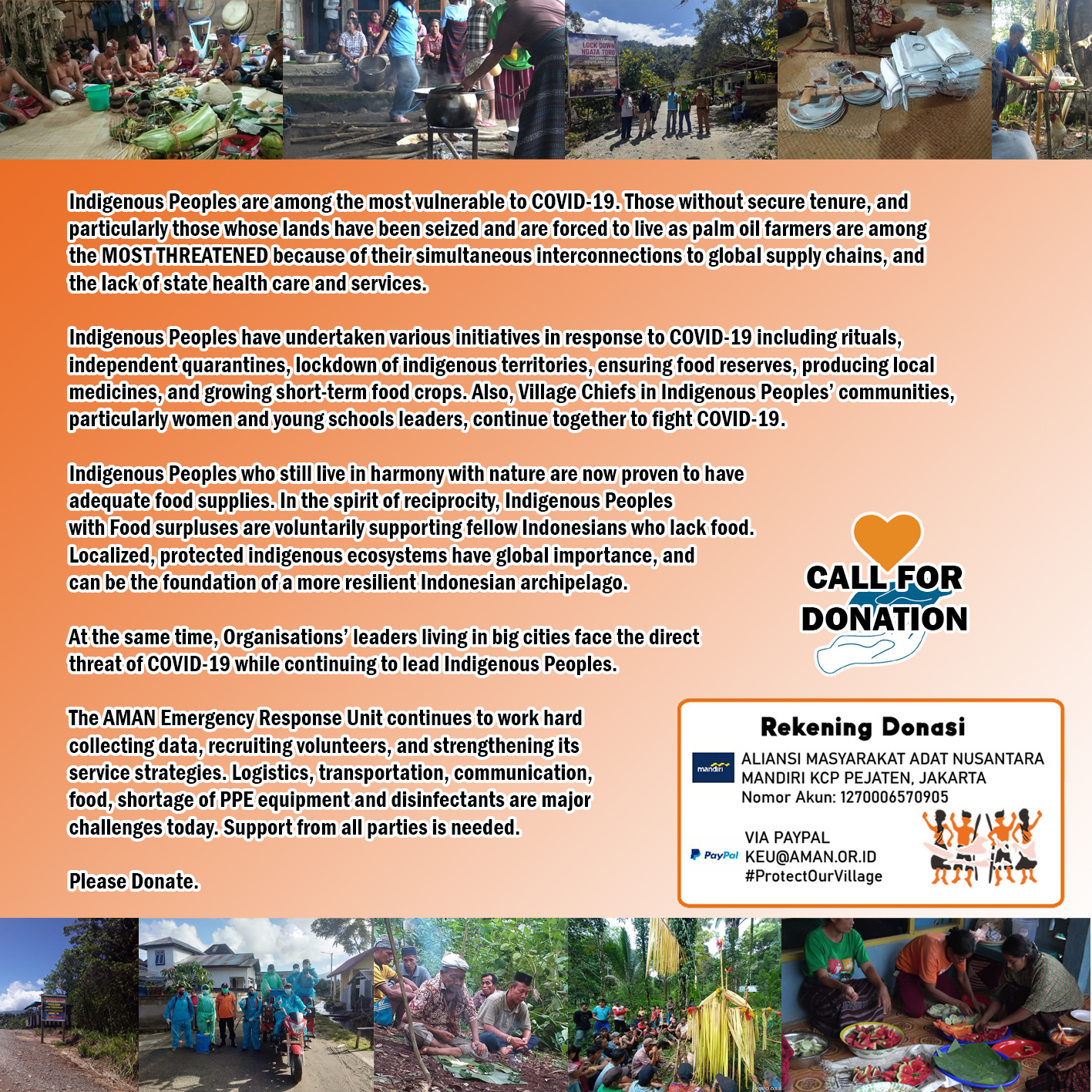
Call for Donation: Helping the Indigenous Peoples Fight Against COVID-19
10 April 2020 Berita Infokom AMANIndigenous Peoples are among the most vulnerable to COVID-19. Those without secure tenure, and particularly those whose lands have been seized and are forced to live as palm oil farmers are among the MOST THREATENED because of their simultaneous interconnections to global supply chains, and the lack of state health care and services. Indigenous Peoples have undertaken various initiatives in response to COVID-19 including rituals, independent quarantines, lockdown of indigenous territories, ensuring food reserves, producing local medicines, and growing short-term food crops. Also, Village Chiefs in Indigenous Peoples’ communities, particularly women and young schools leaders, continue together to fight COVID-19. Indigenous Peoples who still live in harmony with nature are now proven to have adequate food supplies. In the spirit of reciprocity, Indigenous Peoples with Food surpluses are voluntarily supporting fellow Indonesians who lack food. Localized, protected indigenous ecosystems have global importance, and can be the foundation of a more resilient Indonesian archipelago. At the same time, Organisations’ leaders living in big cities face the direct threat of COVID-19 while continuing to lead Indigenous Peoples. The AMAN Emergency Response Unit continues to work hard collecting data, recruiting volunteers, and strengthening its service strategies. Logistics, transportation, communication, food, shortage of PPE equipment and disinfectants are major challenges today. Support from all parties is needed. Please Donate. 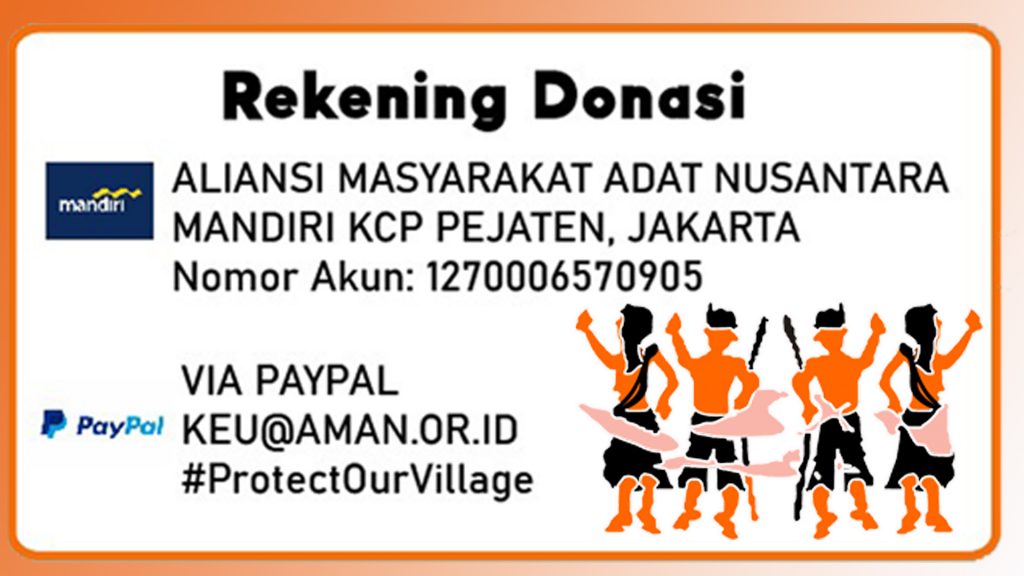
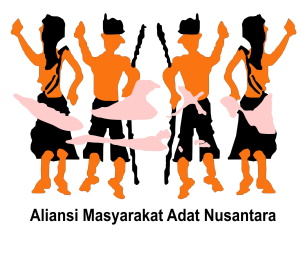
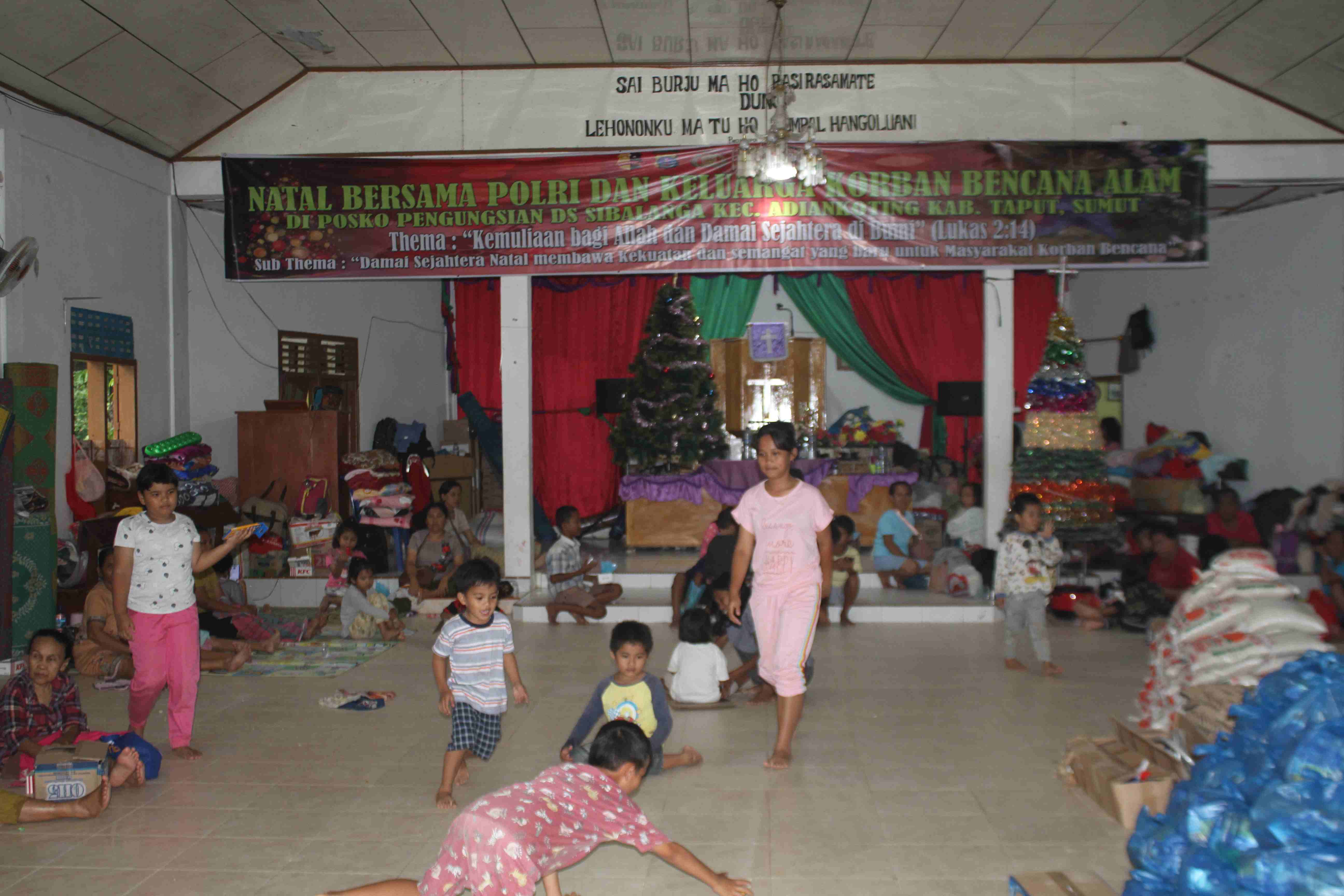
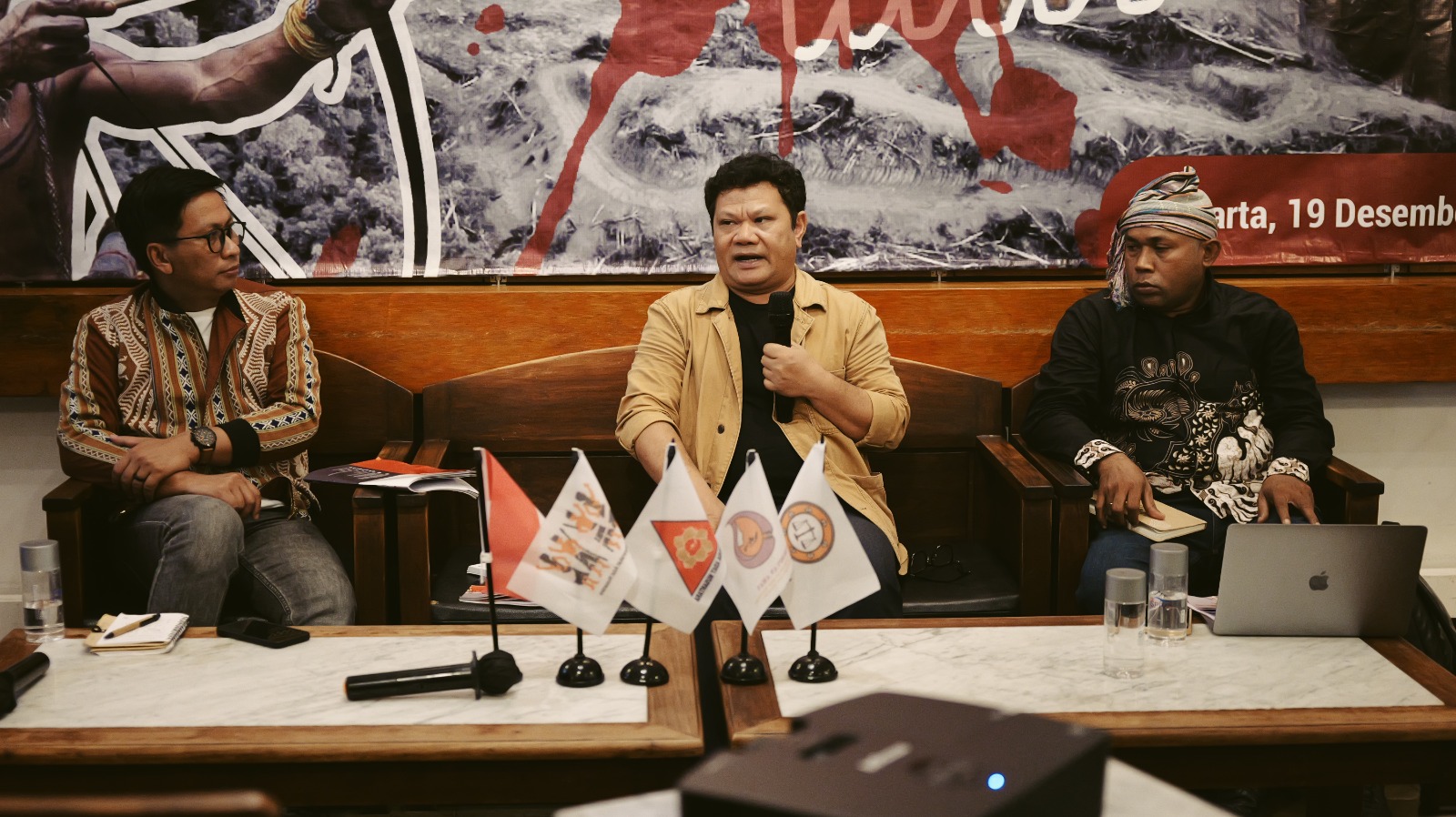
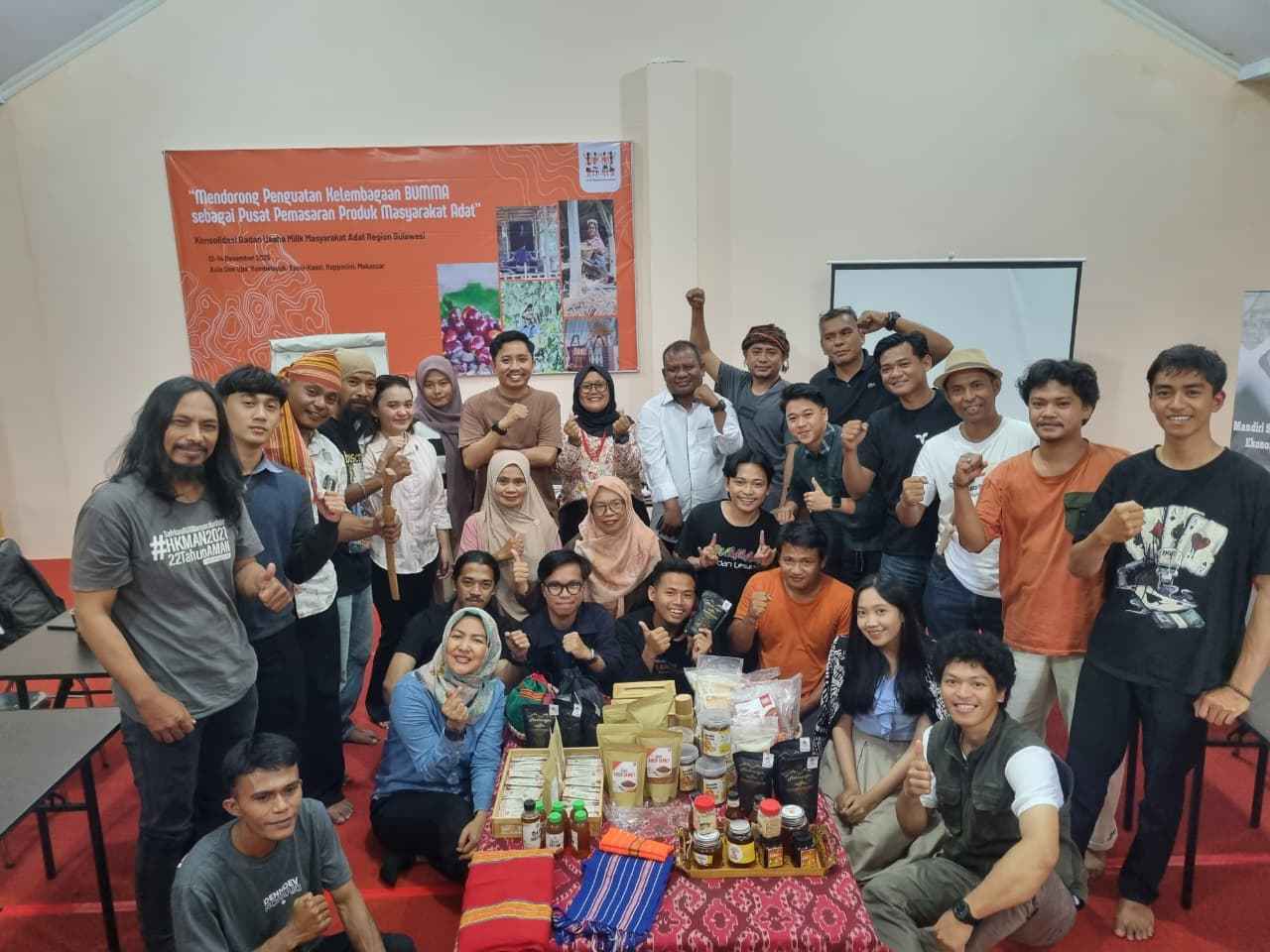
.jpg)
.jpg)